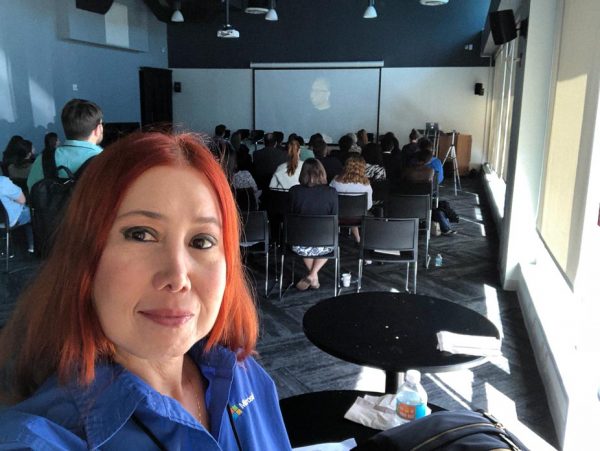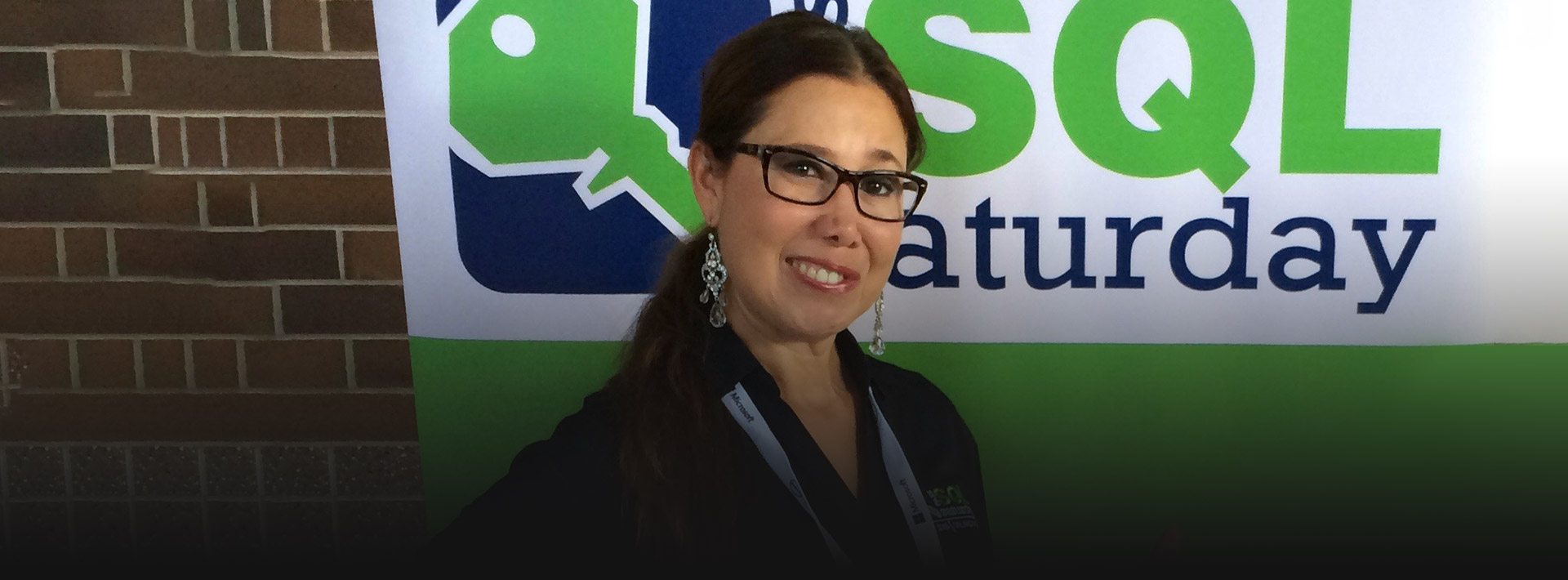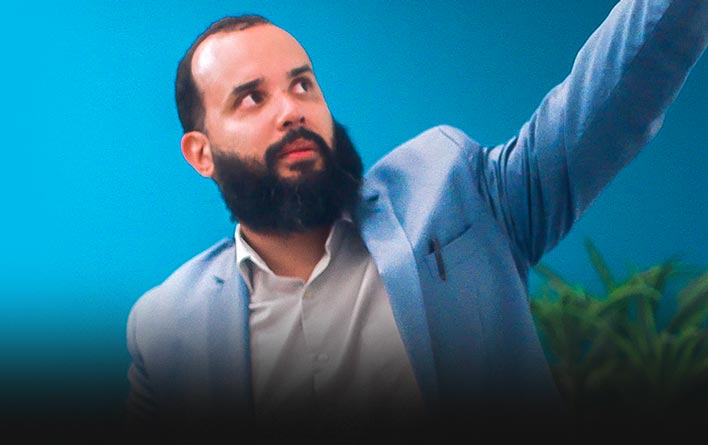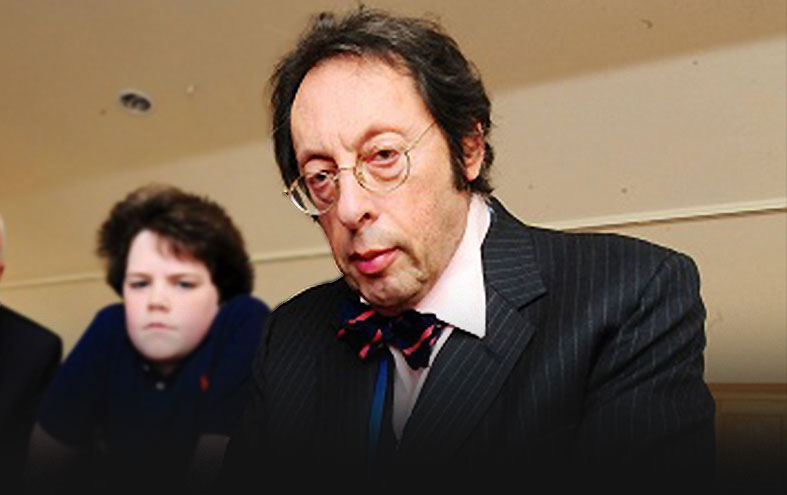
Technology plays a pivotal role in the lives of individuals and organizations. In an era where everything is fast paced and often challenging, a progressive mindset and vision for the future is clearly the driving force of success. To explore the concept of digital transformation, we share some valuable insights from industry expert, Diana Betancourt, Premier Field Engineer in the Data & AI area for Microsoft in South Florida.
Diana is a Premier Field Engineer, working closely with customers from diverse industries. An advocate of technology as well as diversity & inclusion, she believes that digitalization is instrumental in realization of goals and objectives; it is undoubtedly a core segment of a greater revolution we call ‘Digital Transformation’.
Listening to customers, understanding their needs, objectives, concerns and comfort levels, are critical in helping customers embrace technology. ‘Digital transformation for me is everything. It is not just data, software, a process or tool. It is a complete shift in your mindset, a new way of looking at things and a change in every aspect of your life. It could actually start with the concept of effecting change at a personal level’ she says.
She illustrated this using a simple example of changing the way information is stored by an individual. Many of us would write down something on a piece of paper, store it in a wallet and often forget about it. However Digital Transformation, adds Diana, would result in this information producing an efficient result, where data would be converted to ‘intelligence’. Thus, clearly replacing a non-value adding action into a smart outcome. Diana describes this process as the act of ‘converting the physical to digital and the digital to intelligence in order to make advanced decisions and achieve greater efficiencies.’
One would ask, how does ‘digital intelligence’ truly contribute towards success? Diana explains this in the context of an organization that has a need to interpret data and evaluate scenarios. At the core of a business is intelligent information that can help make sound decisions. The ‘backbone’ of a business says Diana is ‘data’; increasingly becoming an important feature of businesses and in the way, we process information. It is undeniably a source that helps benchmark us against our own objectives and the overall industry. Moreover, it could help evaluate performance against KPIs, identify the impact of investment, observe trends in sales, and even formulate strategies.
‘’I would like to quote the CEO of Microsoft, in which he said every organization must start to think like a software company” added Diana, reiterating the importance of technology and information to achieve organizational goals through effective use of data, which can actually open doors to exponential growth. She further argued that it is not just about having data. It is about; how do I make intelligent decisions using data? What is my data telling me? Are we interpreting it the way we should, and converting it into intelligent information? The answers to these questions are found in Digital transformation; the driving force of a progressive era where data is converted to smart information.This concept when applied across sectors and companies, can present a prolific outcome in planning, execution and monitoring, she explained. An example of this is the availability of numerous reporting tools; which allows one to draw data from a variety of sources such as twitter or from within your own financial system and in turn summarize these statistics into a higher-level view providing a landscape for effective management evaluation.
Hence this act of digital transformation is not merely moving from physical to digital, or a simple action item, but a combined effect of every aspect from a digital mindset, data gathering, storing, interpretation and evaluation, and most importantly drawing intelligence in order to arrive at advanced decisions. This symbiotic relationship between the ‘mindset shift’ and ‘intelligent information’ is a formula for successful digital transformation, in order to achieve greater efficiencies.
When one talks of Digital transformation, commented Diana, it is key to understand what customers require, how best it would align with their vision and how to synchronize it into processes. Irrespective of the industry, be it one that requires video, audio or any other, she suggests, the first step is to understand how to create efficiencies, using technology that meets with customer demands. With a plethora of tools at your fingertips, choosing that which achieves the desired outcome plays an important role in your consideration set. Video is one such tool which can be used effectively across industries and for many purposeful interactions.
Sharing further insights on some liberating options from Microsoft itself are, ‘Office 365’ and ‘Power BI’. Office 365 one note is not just a notepad, it helps create notes for yourself and allows for sharing with other individuals and team members. It is like creating a document online and could be extremely advantageous for both organizations and individuals alike. Power BI is a reporting tool for users at all skill levels, which allows you to bring data from multiple sources, such as Excel, submit a power query, compare multiple data sets simultaneously and stream data in real time. This is just a glimpse to what we can do with technology in the process of ‘Digital transformation’.
So, is this concept relevant only for businesses and organizations? Most definitely not. Digital transformation is a 360-degree change in every aspect of an individual or entity. For example, says Diana, observe the number of digital tools used in a house. ‘We are creating intelligent devices. The amount of smart devices in one household is incredible. This is a clear indication of digital transformation, even in one single individual.’
Organizations and individuals, however, still harbor apprehensions over completely embracing this concept, because it is often a big leap for entities that are still using traditional digital tools. Diana emphasizes the importance of empowering individuals and entities through a guided step by step process. When StageYou asked if adopting this process requires a framework, she answered that there is no template, but simply shaping it according to your need.’ The beauty of digital transformation is flexibility.’
In conclusion, StageYou asked Diana about the relationship between the concepts, Digitalization, Digital Transformation and Digital Disruption. She perceives digitalization as a subset of digital transformation; like the use of a new tool or incorporating technology into a process. Digital transformation in her view, is a complete shift in mindset, transforming data to intelligence and a combination of mind and tools; almost embedding advanced technology into the DNA of an organization, its processes, and all critical junctures of operations. Digital disruption however, is a paradigm shift which brings about a radical change, often challenging the norm and the way things are done at present. It is not just the effective use of technology, but the creation of new technology that paves the way for industry revolution. “Digital disruption helps you create, and opens doors to new opportunities. It is disruption in so many ways that positively impacts its environment in entirety. In simple terms taking a company to the next level – from good to great. Digital disruption therefore is great. It makes you re-think, re-look and take a completely vibrant perspective of every aspect of life!”







